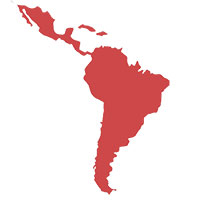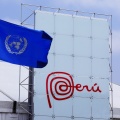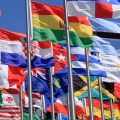A Charge We Must Keep
Malcolm J | December 11, 2014.
With half of the venue shut down for security reasons, and the distant whir of helicopters and fighter jets, John Kerry instantly commanded attention when he took to the stage at the UN climate talks in Lima this afternoon. His arrival on the eve of the crucial final day of negotiations, was a powerful demonstration of the US’s commitment to the success of the conference.
The secretary of state is the second prominent US political figure to arrive at the talks in the last 48 hours. The first, seated in the front row and mentioned by Kerry for his extensive climate campaigning, was Al Gore, the former US vice president. Together, they were a formidable force throughout the hour-long press conference.
Kerry set the scene by describing the lush ecosystems and biodiversity of COP20’s host, from the fish species to the tropical glaciers. But climate change has already struck, he warned, the glaciers are melting, the ecosystems are being destroyed, the fisheries are collapsing. “This is not just a fight by Peru; it is a fight for Peru,” Kerry declared, rousing the support of the locals.
A veteran of climate negotiations, Kerry has seen the development of agreements, commitments and agendas since 1992, when the original UN convention on climate change was opened for signature in Rio de Janeiro. Meetings of the parties to the convention have occurred every year since and over the past decades, a number of implementing mechanisms have been agreed upon. Yet despite all the accomplishments Kerry warned: “We’re still on a course leading to tragedy.” It was not, however, all doom and gloom. Even though we are responsible for creating the problem, we can also solve it, and, he insisted, the solution is ready.
“The solution to climate change is energy policy.”
Responsibility, a hot-button topic throughout the conference, is what everyone needs, Kerry told the assembled delegates. Responsibility to our fellow humans, to our children, to future generations; responsibility to accept that although each individual produces carbon, it’s the “net amount we all share” that needs to be dealt with. Both the developed and the developing nations have a commitment to be part of the solution, particularly the big emitters; by “look[ing] forward down the road” instead of repeating the same mistakes that led us to the current crisis.
In a charged critique of the slow progress of the negotiations, Kerry pointed out that the only thing more costly than climate action is climate inaction. He observed that the costs incurred from the impacts of climate-related disasters, like Typhoon Haiyan during last year’s conference, drain hundreds of billions of dollars from government coffers that instead could be invested in the “transition to a better fuel, to an alternative or renewable, to cleaner, to emissions free, to clean emissions capacity.” The energy policy solution Kerry proposed would also lead to more jobs and economic growth, what all countries want.
In his concluding remarks, Kerry called upon “the negotiators, diplomats, scientists, economists, and concerned citizens in Peru and around the world” to make climate change the most important issue on the public agenda. The window is open, but time is running out. The time to act is now.
“I am confident we can rise above the debates that have dragged us down. We can find a way to summon the shared resolve that we need to tackle this shared threat. And if we do that, then we will reach an agreement and we will meet this challenge. That is our charge, and for the sake of our children, our grandchildren, and our responsibility as human beings on this earth, this is a charge we must keep.”













comment